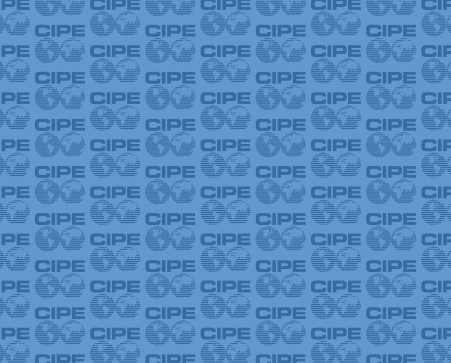
Government officials in towns, cities, states, and regions across the globe are often the first point of contact for citizens, civil society groups, and businesses seeking assistance in addressing a myriad of local challenges. Regional authorities are responsible for tax collection and are accountable to citizens for the stewardship of public finances. Local public officials are most familiar with the economic, social, and political challenges of their jurisdictions and are most adept at addressing these concerns through the delivery of public services and the passage of appropriate legislation. Often, solutions to problems can be found more quickly by engaging the appropriate local level authorities rather than waiting for the adoption of national level legislation. For these reasons, reforming local level governance is often the most effective way to strengthen democratic and economic conditions in a given country.
Local ownership of projects and a focus on local level and grassroots initiatives have been key components of CIPE’s work.
The central component of CIPE’s partnership with the Institute for Solidarity in Asia (ISA) in the Philippines is the Performance Governance System (PGS), a rigorous accreditation program that requires participating organizations to reform and strengthen their governance practices with the goal of improving organizational performance, financial transparency, and political accountability. Since 2004, CIPE has worked with ISA to develop and implement the PGS for local governments across the Philippines. When a city adopts the PGS, local officials work with a broad-based community group to design specific public policy goals, an action plan to accomplish them, and performance metrics by which to measure progress. The Performance Governance System requires a city to implement a series of reforms that fundamentally transform its policymaking processes and bureaucratic structures, and its staff must complete a rigorous training regimen. Results from CIPE’s partnership with ISA have been outstanding. Cities have reduced poverty rates, increased the size of their middle class, and invested more money in education and housing.
Since 2008, CIPE’s work in Nigeria has focused on fostering a better business environment through regional public-private dialogue initiatives in seven states in the country. Nigeria’s federal system of governance has allowed CIPE and local partners to focus their work on regional and local level advocacy initiatives as they create the best opportunity for impact on reform. CIPE’s work has built the capacity of coalitions of professional and business associations at the sub-national level, which represent 130 business and trade associations and more than a million individual entrepreneurs. These coalitions are active advocates for policy reforms that improve their state’s business environment at the local level and strengthen the relationship between the private sector and local governments. CIPE and local partners have addressed the need to educate parliamentarians through training sessions that provide officials with the knowledge and tools to legislate for a better business environment. These efforts have led to tangible impact results such as reducing multiple taxation on businesses in several states, institutionalizing public-private dialogue, and regular public hearings as part of the legislative process to gather input from civil society and the business community on proposed laws.
In the forthcoming publication of Strategies for Policy Reform, two case studies on CIPE’s local level work — one case study on the Philippines and one case study on Nigeria — discuss strategies to engage public officials, civil society, and the business community, and address a myriad of regional challenges. These efforts strengthen constituent participation in the democratic process and improve regional economies.
Teodora Mihaylova is a Research Assistant at CIPE.
Published Date: September 04, 2014